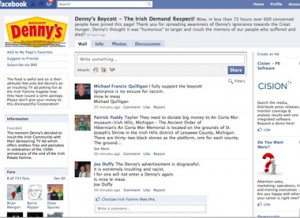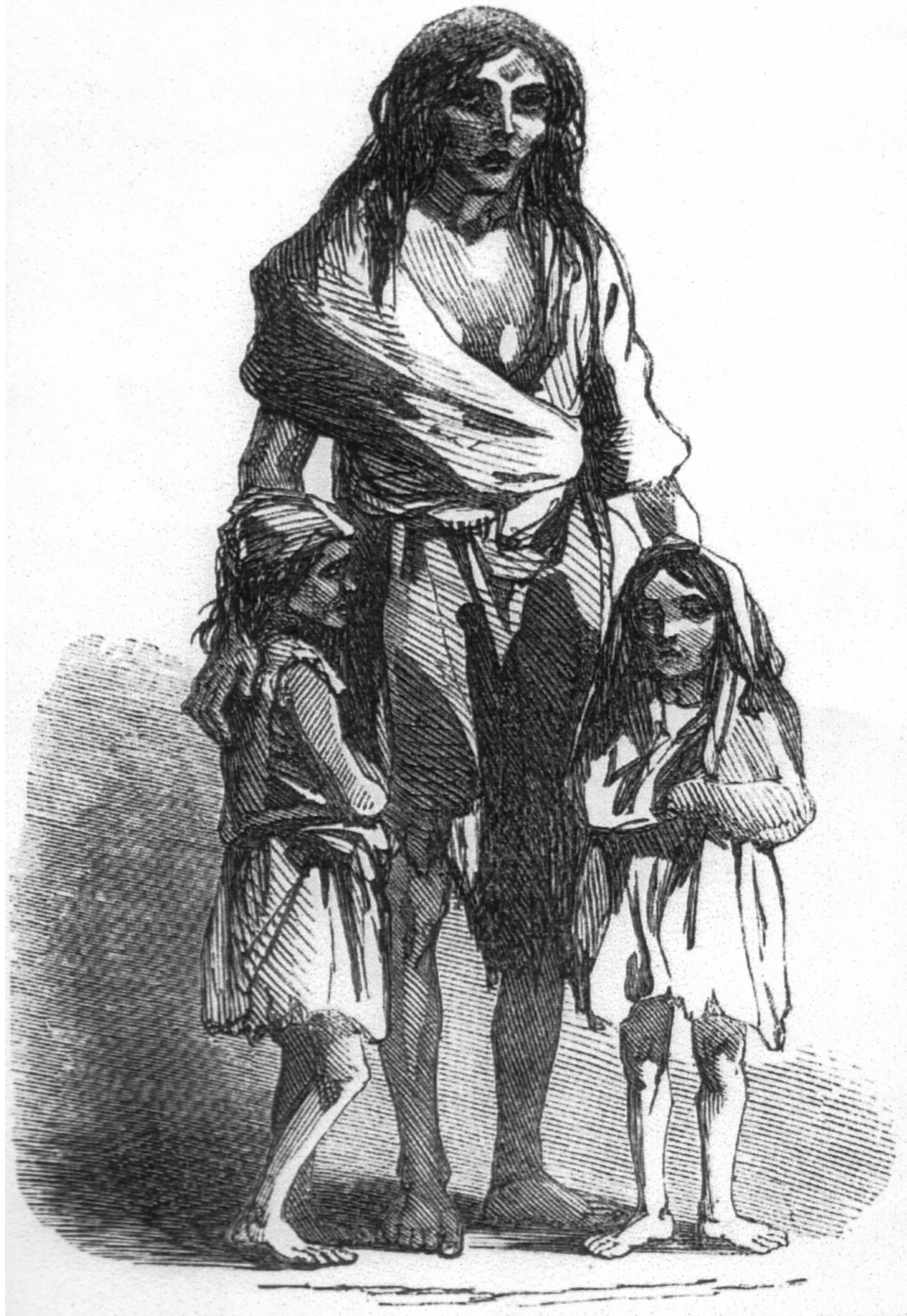
Did you hear the one about the major fast food chain that ran a TV ad offering unlimited fries and pancakes to celebrate the 150th anniversary of the end of the Irish famine?
Did you hear the one about the major fast food chain that ran a TV ad offering unlimited fries and pancakes to celebrate the 150th anniversary of the end of the Irish famine?
Not funny? A lot of people agree with you—among them, the national president of the Ancient Order of Hibernians, Seamus Boyle, who fired off an angry letter to Denny’s over last weekend, and Philadephia Rose of Tralee Centre Managing Director Sarah Conaghan who quickly organized a protest and a Facebook boycott campaign. They made it clear to the South Carolina-based fast food chain: No one in the Irish community was laughing about a promotion making fun of a time in human history that led to the deaths of more than 1 million people. The ad was pulled from the airwaves on Tuesday.
But the protest wasn’t the Grand Slam it should have been.
Those who contacted Denny’s got this response via email:
“Denny’s has a history of using humor in its television advertising. It is certainly not the intention of the company to offend anyone or any group and we apologize if this spot has in any way. As a result of the feedback we have received from our customers the spot will no longer be on the air after Tuesday. We thank those who took the time to contact us.”
It was signed, “Denny’s Call Center.”
“It wasn’t even signed by a real person,” griped Conaghan, of Villanova, who called off her protest and turned it into a boycott of Denny’s on Facebook. So far, in less than a week, nearly 800 have joined the page. On it, one woman echoes many other protesters who wondered whether Denny’s would follow up with other offensive offers: “What’s next- Auschwitz Liberation pancake fest? Ethiopean Egg deal? References to any catastrophe- no matter how long ago is bad taste.”
The agency responsible for the ad, Goodby Silverstein and Partners in San Francisco, doesn’t answer the phone or provide an opportunity to leave a message, says Conaghan. Her Facebook boycott page provides the agency’s number for supporters to call.
Conaghan saw the ad while watching TV with her father, Tom, founder of the Irish Immigration Center in Philadelphia. “We were in shock,” she says. “My father grew up in Donegal, which was very hard hit, and he remembers walking with his father among the ruins of little cottages and fields where people had been evicted or died and his father could name family names. These were real people and there’s nothing humorous about it. Many of the survivors came to America so the history of the Great Hunger is linked forever to the history of Irish Americans.”
In Ireland, it’s called An Gorta Mor, the Great Hunger, because it was a man-made famine, a point AOH National President Seamus Boyle made in his letter to Denny’s, which he shared with www.irishphiladelphia.com.
“The ‘Potato Famine’, as it is sometimes called, was actually a forced hunger which took place in Ireland between 1845 and 1852, which killed over one and a half million of its people,” Boyle wrote. “This starvation. . . . was man made by the English absentee landlords who refused to let the Irish peasants eat anything other than the potato. This is well documented in history that while the Irish people starved for lack of one crop which happened to be their staple, the potato crop, meat, vegetables, corn and other foods were raised and harvested in Ireland and exported to England under guard to be sold for profit.”
“You have the audacity to make fun of the these people who died of starvation much worse than any genocide ever recorded in history, so that you can sell your product on the back of our dead ancestors. I have already contacted our members throughout the United States where Denny’s has a franchise to be ready to mobilize when needed,” Boyle wrote.
Like Conaghan, the AOH leader, a native of County Armagh who lives in northeast Philadelphia, isn’t satisfied with Denny’s apology. “It was a form letter that anyone could have put out,” he says. “It’s not appropriate. They got caught and they tried to get out of it.”
Many are calling for Denny’s to make a contribution to an Irish cause, like the Hibernian Hunger Project, an AOH national program that started in Philadelphia to provide food to the needy. But Boyle disagrees. “A few years ago a beer company did something similar and offered the Irish money, but I think that was a buyout. Instead of giving it to us as an ‘apology,’ I would rather see Denny’s give $800,000 to Haiti relief because that’s where the money is really needed today,” he said.


